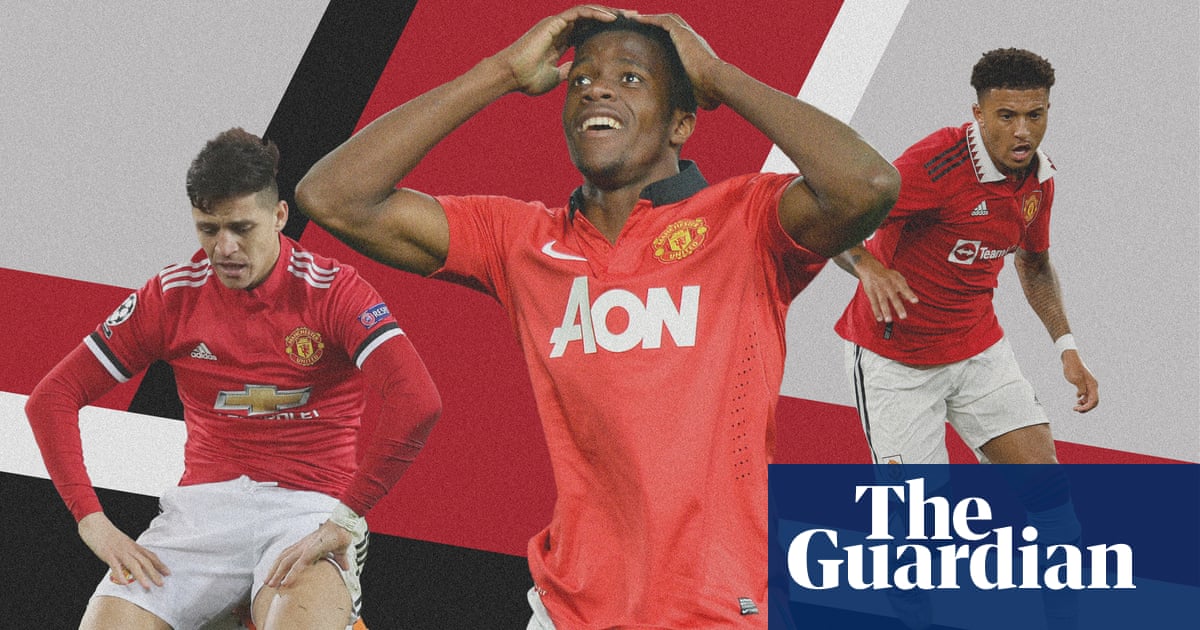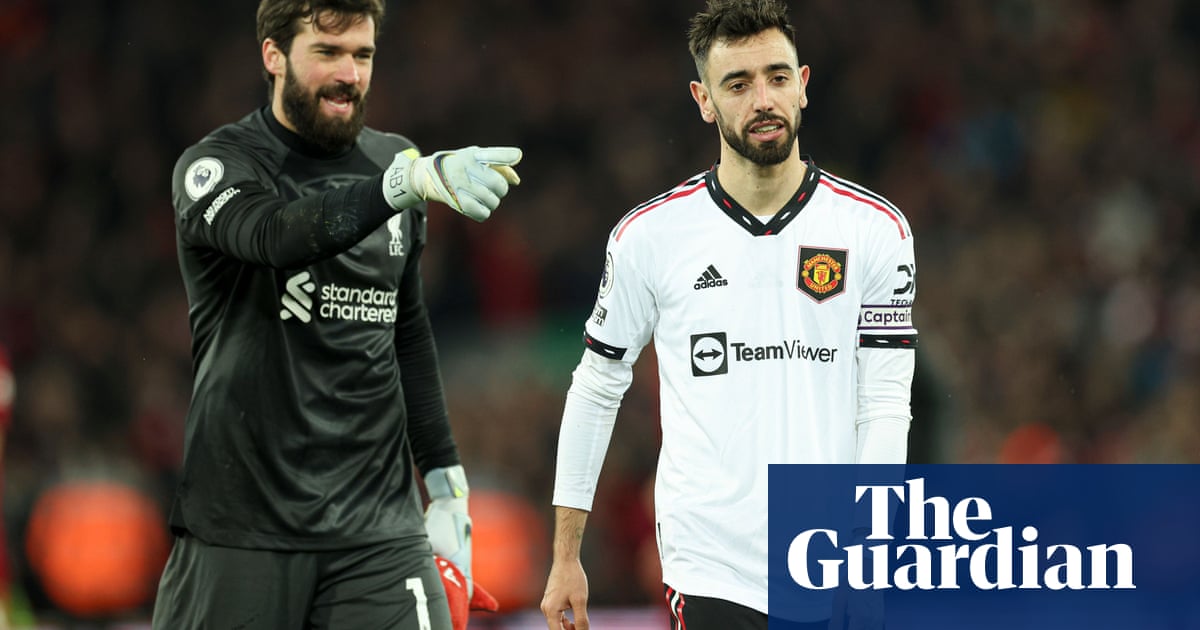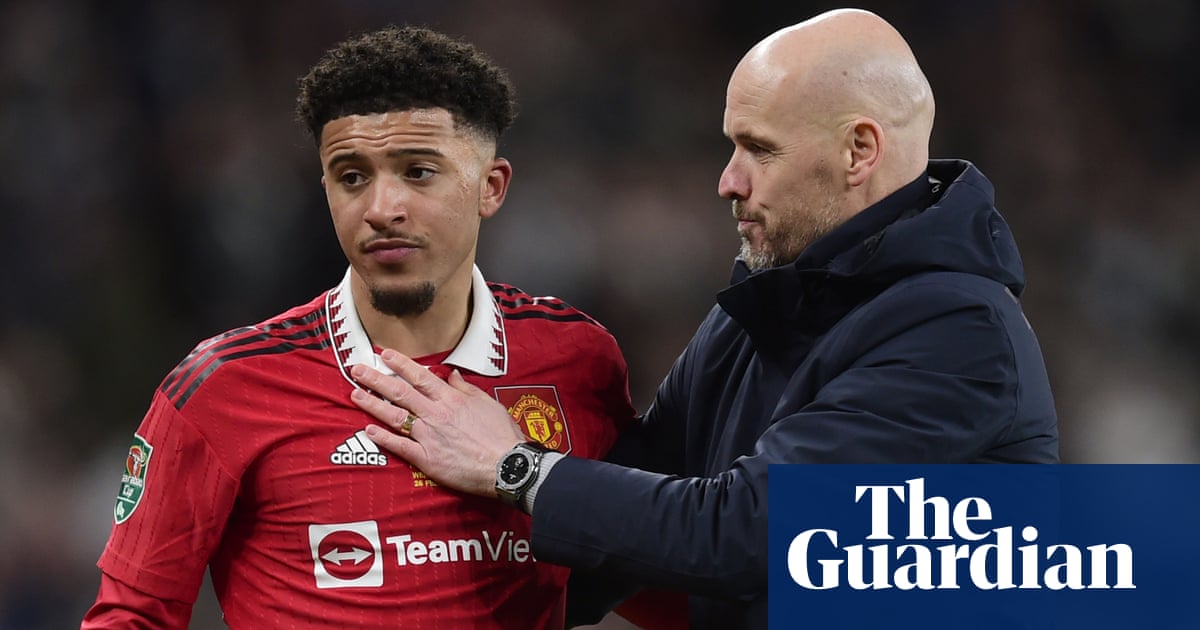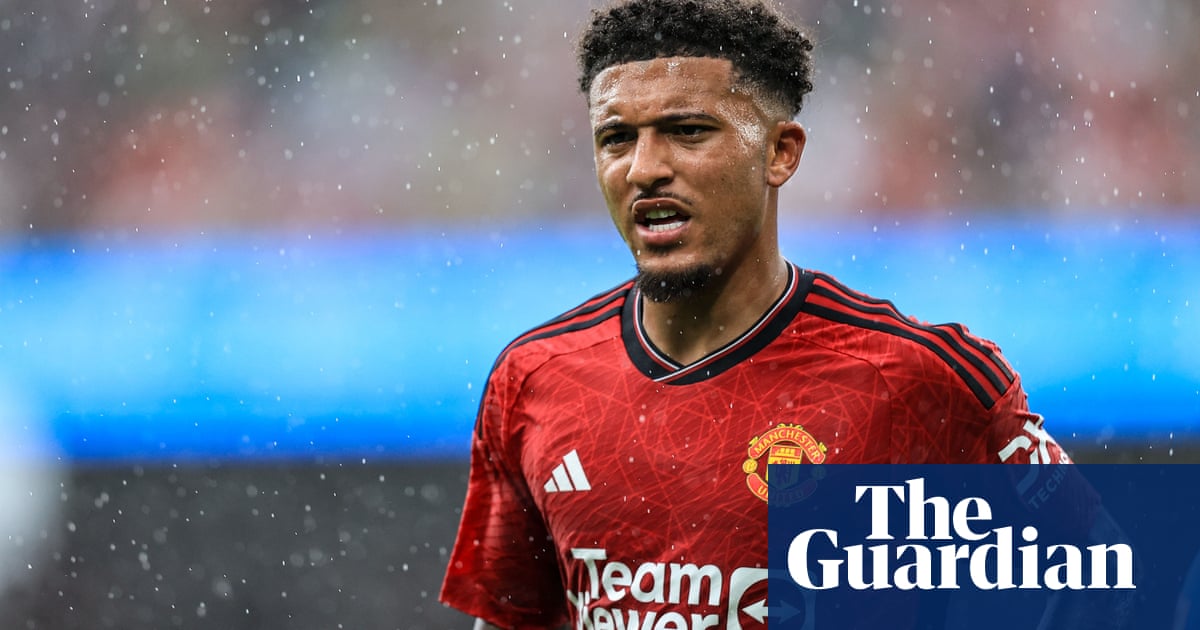
They are Manchester United’s Lost Boys, victims of the meat grinder of English football’s most wasteful club, flushed down a seething well of talent. Each received excitable advanced notices and premature hero worship, only to be dragged into the black hole that is Old Trafford in the lost decade since Sir Alex Ferguson stepped down. Any nascent talent now joins the club at the peril of being damned by United; there are many warnings from recent history to abide by.
Ferguson’s United was the club where youth flourished and attacking talent was given freedom of expression and ammunition to thrive. The club’s prime youth products of the past decade are Marcus Rashford, whose current form is being lamented, and Scott McTominay, who United were willing to sell this summer. United always spent big but perhaps only Bruno Fernandes, himself still a divisive figure, could be said to have joined the club and fully enhanced his reputation.
As Barney Ronay wrote in these pages of Wilfried Zaha, he was “the first of the Lost Boys”, his 167 minutes for United setting a template of failure. Signed midway through Ferguson’s final season but allowed to remain at Crystal Palace, where he had been the best player in the Championship, until the summer, Zaha arrived as David Moyes did. Neither would last the first season and as Moyes’s regime curdled, Zaha was loaned to Cardiff in January 2014, his departure the subject of the type of wild rumour that became common to his fellow flops. Once returned to Palace, he soon returned to being that club’s most crucial player.
Zaha’s opportunities were limited by the brief flourishing of Adnan Januzaj, whose first few appearances were so impressive that discussions of trying to naturalise a Belgium-born teenager with Albanian-Kosovar roots for England became a tabloid row. Moyes was a confirmed fan but once he was fired in April 2014, the slightly built Januzaj, who finished the season at the World Cup with Belgium, swiftly dropped from view. Louis van Gaal’s experiments with him as a centre-forward fell flat, and Ryan Giggs’ former No 11 shirt hung heavy. Still only 28, he is currently a Sevilla player.
Van Gaal’s summer 2014 arrival led to the signing of his fellow Dutchman Memphis Depay from PSV a year later. Depay was not short of confidence. “I believe I can be one of the best players in the world,” he said, comparing himself to Cristiano Ronaldo, too, as he took the No 7 shirt. Two Premier League goals and a second season where he started one match were where that comparison came to rest. Depay, now at Atlético Madrid, has gone on to be a highly useful forward for club and country, with whom he played under Van Gaal again. “Now we kiss each other on the mouth,” said the manager, reflecting on shared dog days in Manchester.
That Anthony Martial remains at United results from a severe loss of form and high wages but there was a point in Van Gaal’s second, final season when the Frenchman and Rashford seemed the future of the club. José Mourinho did not share that opinion, making Martial, a centre-forward by anyone else’s measure, compete with Rashford for a place on the wing. Injuries and frequent losses of form have made the man who signed in the summer of 2015 only occasionally useful to Mourinho’s successors.
In hindsight, considering the alignment of personalities, Paul Pogba as summer 2016’s flagship signing for the new Mourinho regime was always a disaster waiting to happen, even if the pair did lift the Europa League together a year later. Mourinho failed to find the key to the enigmatic, wilful Frenchman. A previous youth product signed for a world-record fee who then left on a free is a transactional disaster that still comes little way to matching the disappointment of Pogba’s United career.
Henrikh Mkhitaryan, from the same agency stable, a free-spirited creative talent, was another curious Mourinho signing, never quite fitting the cautious, muscular tactics the manager preferred. Despite a goal in the 2017 Europa League final, it was little surprise a player previously hailed as the best in the Bundesliga was traded out.
That it was for Alexis Sánchez in January 2018 reflected United’s now notoriously scattergun transfer policy, headed up by their CEO at the time, Ed Woodward. A player Manchester City wanted, who at Arsenal had claims to be the best attacking player in English football, was signed on eye-watering wages, to achieve the square root of nothing in a United shirt.
After Zlatan Ibrahimovic – an actual success but an aged veteran – had succumbed to injury, Romelu Lukaku and Mourinho – now reunited at Roma – was another odd fit. Mourinho’s second spell at Chelsea had begun with discarding Lukaku on loan, and yet a hefty fee was paid to Everton. The more direct style United adopted around Lukaku divided fans, and when Mourinho’s end came, among the first of his successor Ole Gunnar Solskjær’s acts was to sideline the Belgian.
The presence of Harry Maguire here is no reflection on the excellence of United’s defending over the last decade. It has been just as listless and inconsistent as the attack but a player signed as a franchise defensive leader now symbolises the club’s slide. An encouraging first season – and the continuing patronage of Gareth Southgate – are no fig leaf for the unfortunate figure of ridicule Maguire has become. That a summer escape route to West Ham was not accepted only adds to the pathos.
Another whose exit surely nears is Jadon Sancho. Manchester United idols such as Best, Beckham and Rooney survived being banished from the club to flourish anew, but the player who was an assists machine at Borussia Dortmund has been sent away from the first team by Erik ten Hag with questions over attitude and fitness hanging heavy as United’s vortex swallows him up.












